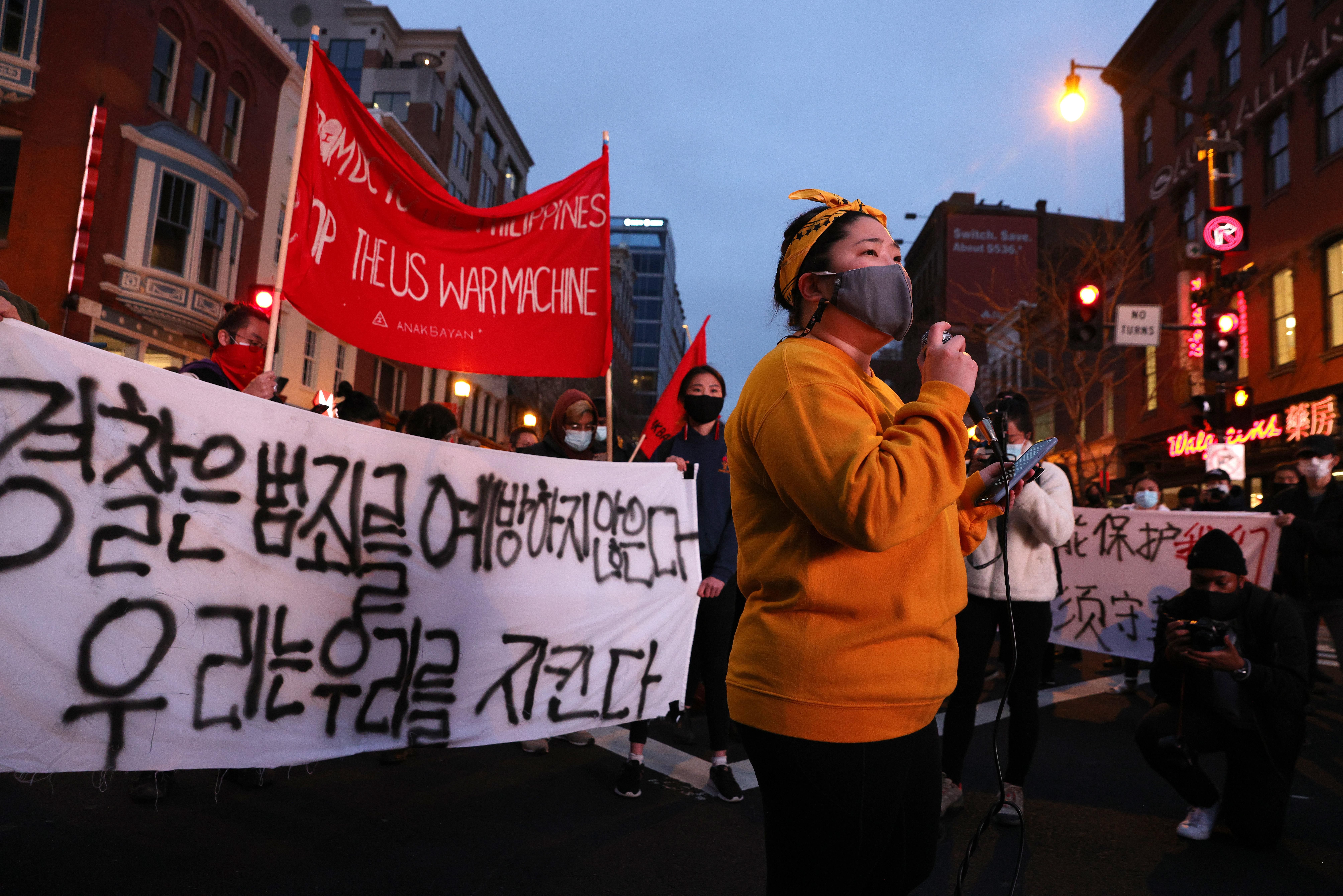The Atlanta shooting and San Fran attack are more examples of how real racism is for Asian-American women
The past year has been difficult on everyone. The COVID-19 pandemic left many navigating through a cloud of uncertainty, while an uprising in police brutality towards Black Americans left others in immense anger. On Tuesday, that bubble of discouragement only widened, when a man shot and killed eight people at a spa in Atlanta- six of whom were Asian women.
While officials have not confirmed if the attack was racially motivated, Robert Aaron Long, 21, was charged Wednesday with eight counts of murder in connection with the attacks.
"Whatever the motivation was for this guy, we know that the majority of the victims were Asian," Atlanta Mayor Keisha Lance Bottoms said. "We also know that this is an issue that is happening across the country. It is unacceptable, it is hateful and it has to stop."
This is another addition to the growing amount of hate crimes, geared at Asian Americans, occurring within the U.S. While hate crimes towards Asian Americans are nothing new, we cannot deny the vulnerability Asian women uniquely face. I do not think it was a coincidence 6 of the 8 victims were Asian women.
In fact, Long specifically told police he had a "sexual addiction" and targeted the massage parlors to eliminate his "temptation," as reported by The New York Times. In addition, Long also mentioned he frequented massage parlors in the past, carrying out the attacks as a form of personal revenge.
Again, this is nothing new. It is merely confirmation that male violence seeps heavily into every major institution, and women - especially those of color - are continuously left to pay the price. It also doesn't help a majority of Republicans don't support the Violence Against Women Act, which "creates and supports comprehensive, cost-effective responses to domestic violence, sexual assault, dating violence and stalking," according to the National Network to End Domestic Violence (NNEDV).
On Thursday, the House of Representatives voted to renew the act, initially created by our current president, Joe Biden, in 1994. Representatives voted 244-172. Of those 244 votes, only 29 were Republicans. On what planet does that make sense? How can our country reinforce a system to protect women, when the majority of its lawmakers don't support an act that denounces violence against them?
"The pandemic continues to reveal deep racial and gender inequalities that impact survivors' lives and jeopardize their safety," Deborah Vagins, president of NNEDV said. "The VAWA addresses the needs of historically marginalized survivors in a number of critical ways."
Within hours after news broke of the shooting, many individuals took to Twitter to voice their frustration on the ongoing violence against Asian Americans within the U.S.
Zendaya has some words for Giuliana Rancic over her racially insensitive Oscars comments
"Just because someone says their acts of violence weren't "racially motivated" doesn't mean they weren't. Racism is viciously nuanced, with historical context, economic considerations, and warped ideology. #StopAAIP #StopHate #BeWise #BeLOVE" Bernice King, daughter to Martin Luther King Jr. wrote on Twitter.
Supernatural actor, Mischa Collins also weighed in the on horrific events writing: "We need to take decisive aim at our gun laws & enact sensible reforms to ensure that those with hate-filled hearts are no longer armed to destroy lives. It's time we put safety on the agenda in America. #StopAsianHate #StopAAPIHate"
In addition to Tuesday's shooting, an elderly Asian woman was attacked on Market Street in San Francisco Wednesday. The victim, Xiao Zhen Xie, was reportedly waiting at a traffic light, when a man suddenly approached her and punched her in eye. When I read stories like Xie's, it really makes me question the human race.
But more importantly, we need to address this injustice for what it is: a domestic terrorist attack. Everyone encounters "bad days," here and there. However, they don't lead to murder. Misogyny and racism, on the other hand, do. Society needs to stop making excuses for white terrorists, and hold them accountable for their actions.
Have you got something to say about this subject? Submit a post here and start the conversation.
